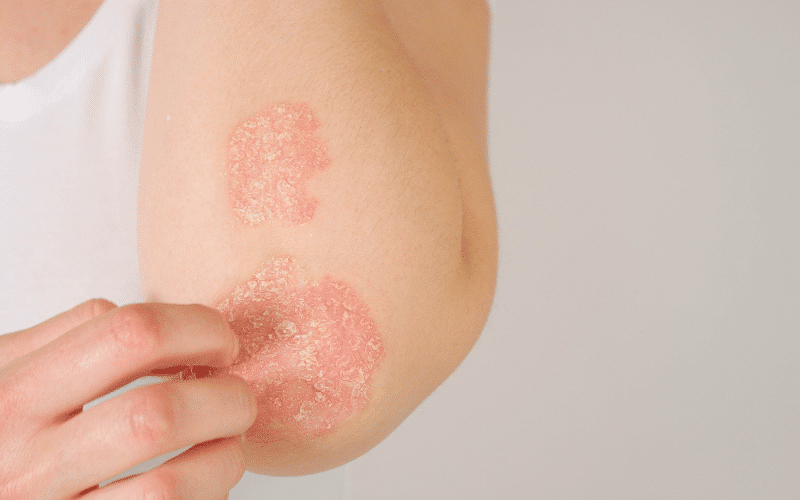3. Psoriasis: The Persistent, Scaly Skin Disorder

Plaques and Scales: The Classic Signs of Psoriasis
Psoriasis is an autoimmune skin disorder that causes the rapid overproduction of skin cells, leading to the formation of thick, scaly plaques. These plaques are typically red, inflamed, and covered with silvery-white scales. Psoriasis most commonly affects the elbows, knees, scalp, and lower back, but it can appear anywhere on the body.
Flare-ups and Triggers: The Ups and Downs of Psoriasis
Like eczema, psoriasis symptoms can come and go, with periods of remission followed by flare-ups. Common triggers for psoriasis flare-ups include stress, infections, skin injuries, certain medications, and even changes in weather. Identifying and managing these triggers can help reduce the frequency and severity of psoriasis symptoms.
Types and Severity: The Spectrum of Psoriasis
There are several types of psoriasis, including plaque psoriasis (the most common form), guttate psoriasis, inverse psoriasis, and pustular psoriasis. Each type presents with different symptoms and may require different treatment approaches. The severity of psoriasis can range from mild (affecting less than 3% of the body) to moderate (3-10%) to severe (more than 10%).
Treatment Options: Topicals, Phototherapy, and Systemic Medications
Treatment for psoriasis depends on the severity and type of the condition. Topical treatments, such as corticosteroids, retinoids, or coal tar, can help reduce inflammation and slow skin cell growth. Phototherapy, which involves exposing the skin to ultraviolet (UV) light under medical supervision, can also be effective for managing psoriasis symptoms.
For more severe cases or when other treatments have failed, systemic medications like methotrexate, biologic drugs, or oral retinoids may be prescribed. It’s important to work closely with a dermatologist to find the most appropriate treatment plan for your specific situation. (3)